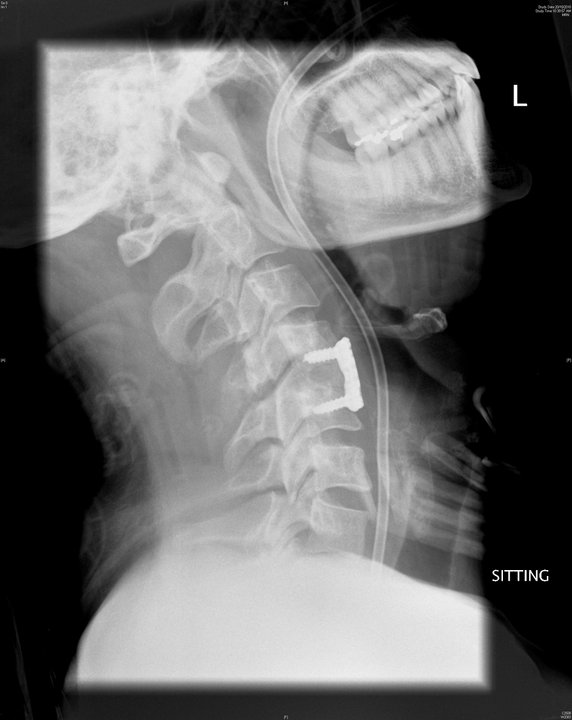I recently received notification that my latest scholarly article has been published in the journal of Disability and Rehabilitation, “Grieving my broken body: an autoethnographic account of spinal cord injury as an experience of grief.”
I have permission to publish on my website the version submitted to the Journal, which is available HERE. Anyone interested in the a citable version can contact me directly, and I can give you a link for the final published copy.
I think this is one of my or accessible articles. The abstract is a little dry, but it will at least give you some indication of what the article is about.
Abstract
Purpose: For good reason, the trajectory of contemporary research and therapy into rehabilitation following spinal cord injury (SCI) has moved away from focusing on the pathology of depression, to highlight the contribution of resiliency, optimism, and hope to long-term well-being. This paper complements this literature, exploring the analogous links between the losses of spinal cord injury and the experiences of the grief that accompanies the death of a loved one.
Method: The paper uses autoethnography, drawing on the authors’ writing about his own experiences as a C5 (incomplete) quadriplegic, to identify a correlation between the stages/symptoms of grief and the journey of rehabilitating from an SCI.
Results: The paper highlights the ‘wild’ and ambiguous reality of adjusting to an SCI, and so challenges the dualist tendency to assume that people are either resilient or weak, successful or unsuccessful in their recovery. It recognises that adjusting to an SCI involves complex swings in emotion – sadness, anger, and melancholy, alongside hope and determination.
Conclusion: Drawing on strategies of grief therapy, the paper suggests that constructing and reconstructing the story of one’s own life is essential to learning to accept and live with an SCI.
Implications for Rehabilitation
- since the losses accompanying SCI are analogous to grief, grief therapy strategies that recognise the complex and ambiguous nature of recovery can be part of rehabilitation
- therapy should encourage people to construct and reconstruct narratives – life stories – that help them mourn their loss and make sense of their new lives
- the loss of an SCI is especially potent following return to the community, so storied therapy should continue beyond the period of the in-house rehabilitation.

5 Comments
Anna Deevy
January 10, 2014 at 4:51 pmWow, great article. Very eye-opening. Thanks for sharing and I look forward to reading your memoirs!
Shane Clifton
January 10, 2014 at 5:06 pmthank you!
Clare Harrison
January 11, 2014 at 12:00 amHi Shane
I want to tell you how much I appreciate you expressing yourself in the way you do. Most of us can’t articulate our situations so insightfully, or be tenderhearted towards the foolishness and inadequacy that sometimes appears alongside the admirable parts of us. It is very powerful to those of us dealing with these issues. You are becoming a SCI statesman and I am grateful you are helping people become aware of these things.
Shane Clifton
January 11, 2014 at 2:28 pmwell, I’m a heck of a long way from that – but I am certainly glad that you find my writing meaningful. Thank you for the encouragement.
Deb
January 16, 2014 at 9:06 amHi Shane
I like the way you argue against the idea that a person can be statically classified as either resilient or weak. As you said, “adjusting to an SCI is fraught with complex swings in emotion as well as physical and psychological achievements and setbacks, so that happiness/well-being is only ever tenuously grasped”. We all have different challenges to face, and different resources on hand at different times in our lives.
I wonder about Quale & Schanke’s assertion that resilience “refers to important psychological skills and to the individual’s ability to use family, social, and external support to cope better with stressful events”. Unfortunately the very nature of some afflictions often leads to diminishing support from family, friends, and others – for example, mental illnesses and homelessness in the ‘developed’ world; vaginal fistulas in the developing world. If a woman who is suffering reaches out and is met with rejection, is she less resilient if her resolve to keep reaching out weakens? Or perhaps she may be focussing her energy on less discouraging paths to resilience!
So I prefer a broader definition of resilience: ability to leverage one’s resources to cope with change. Furthermore, a person’s resilience can be heavily influenced by ‘protective factors’ such as safe, caring relationships, stable family life, broader social support. I think it really is an important step to separate ‘personal resilience’ from ‘protective factors’ – otherwise people who have been blessed with more protective factors might run the risk of judging those who have had less protective factors as weak, thinking that somewhere along the way this person should have gotten their act together!
In any case, I’d like to think the whole concept of psychological resilience was developed not to finger-point at ‘weak’ vs ‘strong’, but to help us all think about how we can strengthen ourselves and support one another. I think your paper contributes to this resilience-building work 🙂
I can see how it would help a person adjusting to an SCI, to understand that part of what they go through will be like grief. In giving permission to process immense feelings of loss, it takes off the pressure we may put on ourselves to ‘be strong’ when we do actually need time to just be human, and feel our way through the journey of grief and recovery. It’s also a great way to help a community understand the kind of patience and support that will help.